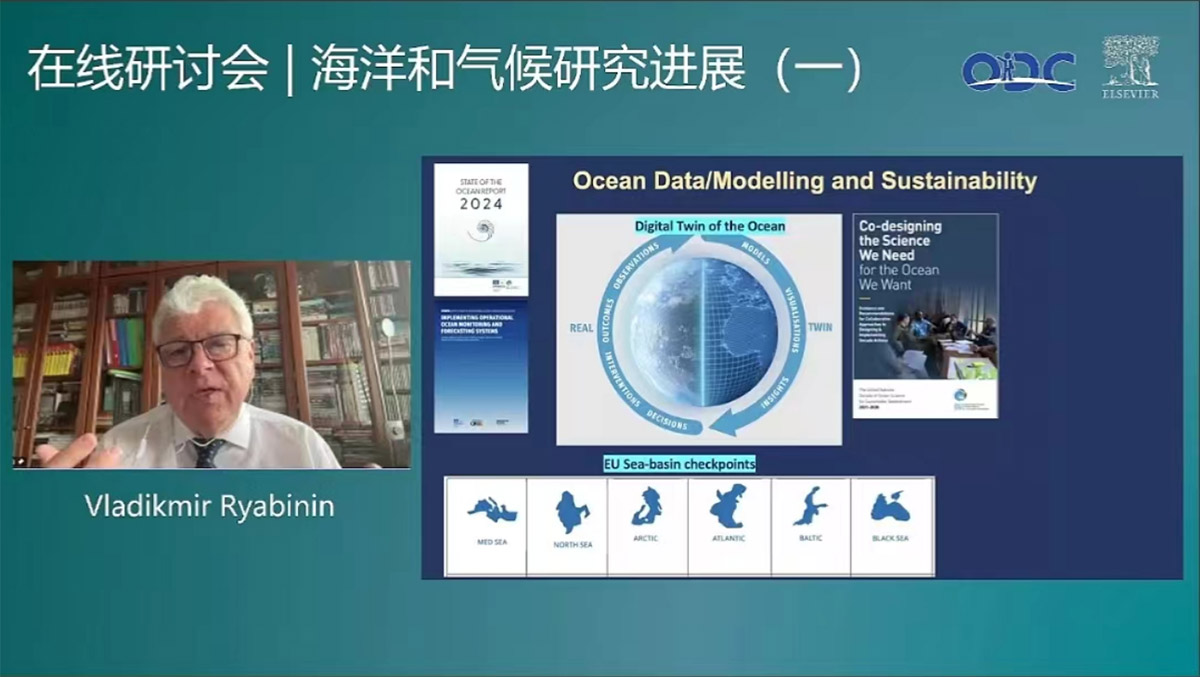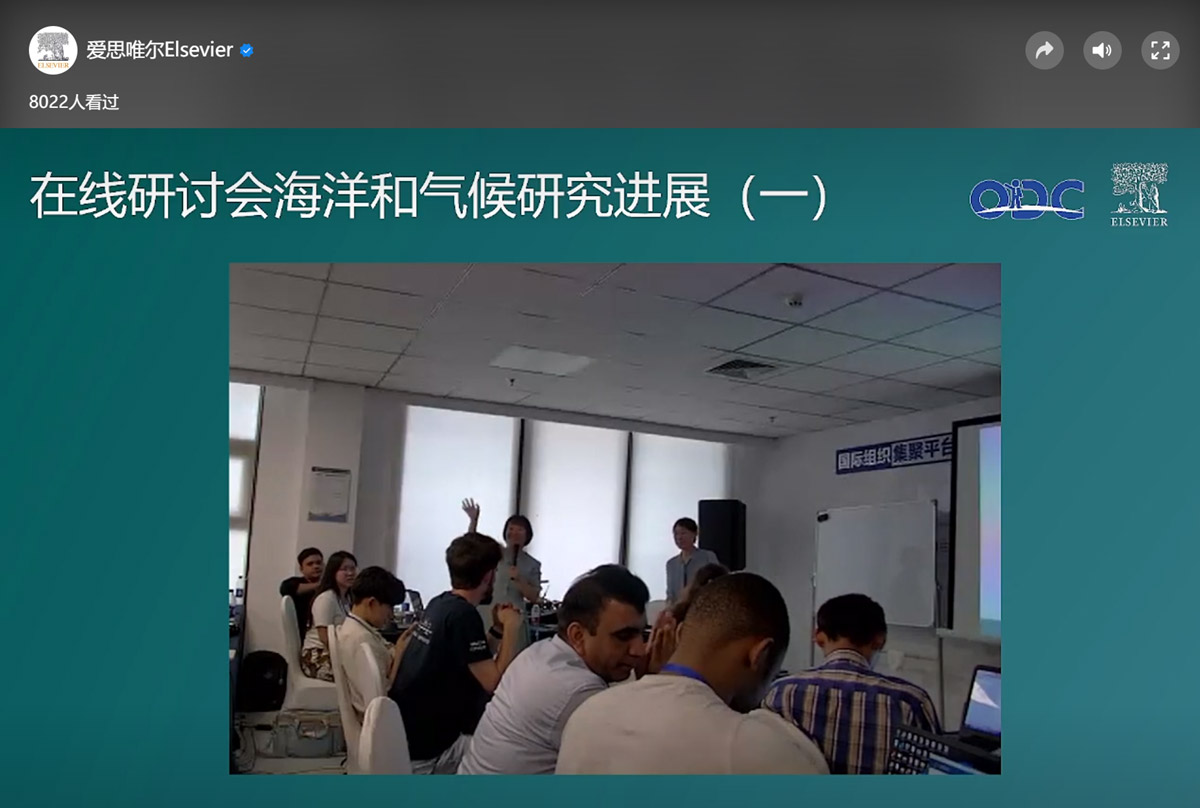On July 12, United Nations Decade Collaborative Center on Ocean-Climate Nexus and Coordination Amongst Decade Implementing Partners in P.R. China (DCC-OCC) and ELSEVIER successfully organized a webinar, which is the first collaborative activity since the signing of the Memorandum of Understanding (MoU) between the two parties on July 8th.
The webinar was based on the "Training Course on Ocean Models and Ecosystem Models" and "CLIVAR-FIO Earth Model Training Course" organized by the DCC-OCC and the Regional Training and Research Centre on Ocean Dynamics and Climate (RTC) of the Intergovernmental Oceanographic Commission (IOC) of UNESCO. The lectures of the invited experts were broadcasted live by Elsevier in several media platforms. The training invited senior experts in the field of global climate to conduct a two-week offline lecture series for 44 young scholars from 23 countries.
The online webinar consisted of two expert presentations, including Ocean Science and Sustainability by Dr. for Vladimir Ryabinin, former Executive Secretary of the IOC and Assistant Director-General of UNESCO, and Scientific Paper Writing by Dr. Sun Chengjun, researcher of the First Institute of Oceanography of the Ministry of Natural Resources of China. Dr. Vladimir expressed his pleasure in attending the webinar and praised Qingdao as the world capital of marine science. He introduced the history of the World Sustainable Development Goals (WSDGs) and the UN processes related to the oceans, including the origins, implementation and future development of the UN Ocean Science for Sustainable Development (2021-2030), which will be officially launched in 2021, with a special reference to the scientific and technological contributions made by the First Institute of Oceanography of the Ministry of Natural Resources of China in the field of model development, which is based in Qingdao, and the major scientific and technological mission of the DCC-OCC in Qingdao. Dr. Sun Chengjun gave a detailed and comprehensive explanation of the essentials and considerations of scientific paper writing, from language expression to title, abstract and article structure, as well as the submission process, which benefited the trainees and the online audience greatly.

In addition to the course participants, more than 8,000 visitors attended the webinar. After the presentations by the experts, the participants and the online audience actively asked questions, and the seminar was successfully concluded in a warm and peaceful atmosphere.

This online seminar was also a UN Ocean Decade on Campus activity co-organized by DCC-OCC and Elsevier. As the founding members of the UN Ocean Decade on Campus Alliance, DCC-OCC and Elsevier are actively committed to the popularization of marine science and the development of young scientists, contributing to the realization of the vision of the Ocean Decade.
On July 8, 2024, DCC-OCC and Elsevier signed a MoU in Qingdao, China, to carry out in-depth cooperation in the areas of scientific and technological breakthroughs in ocean and climate research, global scientific research training and popularization of science education, and the development of scientific and technological journals on oceans and climate. In order to strengthen and implement the cooperation plan, the two sides will build an international cooperation platform for ocean and climate research based on their respective strengths, facilitate the rapid publication and wide dissemination of research results, jointly carry out training programs for young scientists, and focus on raising public awareness of ocean and climate issues, making complex scientific information more accessible to the general public through a variety of forms.